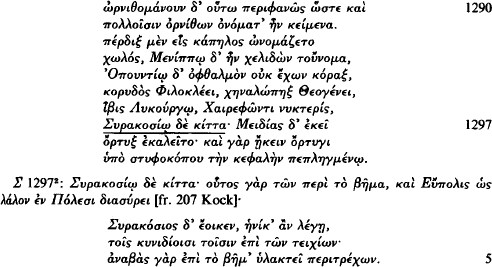Research Article
Is KΛΕΟΣ ΑΦθΙΤΟΝ a Homeric Formula?
-
- Published online by Cambridge University Press:
- 11 February 2009, pp. 1-5
-
- Article
- Export citation
Leaders of Men? Military Organisation in the Iliad
-
- Published online by Cambridge University Press:
- 11 February 2009, pp. 285-303
-
- Article
- Export citation
Euboulia in the Iliad
-
- Published online by Cambridge University Press:
- 11 February 2009, pp. 6-31
-
- Article
- Export citation
Pindar, O. 2.83–90
-
- Published online by Cambridge University Press:
- 11 February 2009, pp. 304-316
-
- Article
- Export citation
The Broken Wall, the Burning Roof and Tower: Pindar, Ol. 8.31–46
-
- Published online by Cambridge University Press:
- 11 February 2009, pp. 317-321
-
- Article
- Export citation
A residual problem in Iliad 24
-
- Published online by Cambridge University Press:
- 11 February 2009, pp. 32-37
-
- Article
- Export citation
The Shield of Heracles and the legend of Cycnus
-
- Published online by Cambridge University Press:
- 11 February 2009, pp. 38-59
-
- Article
- Export citation
Athenian Festival Judges–Seven, Five, or However Many
-
- Published online by Cambridge University Press:
- 11 February 2009, pp. 322-326
-
- Article
- Export citation
Archilochus and Lycambes
-
- Published online by Cambridge University Press:
- 11 February 2009, pp. 60-67
-
- Article
- Export citation
Ajax in the Trugrede
-
- Published online by Cambridge University Press:
- 11 February 2009, pp. 327-336
-
- Article
- Export citation
The Chronology of the Pentekontaetia
-
- Published online by Cambridge University Press:
- 11 February 2009, pp. 68-85
-
- Article
- Export citation
Sophocles, Trachiniae 94–102*
-
- Published online by Cambridge University Press:
- 11 February 2009, pp. 337-342
-
- Article
- Export citation
Pythian 11: did Pindar err?
-
- Published online by Cambridge University Press:
- 11 February 2009, pp. 86-94
-
- Article
- Export citation
On Medea's Great Monologue (E. Med. 1021–80)*
-
- Published online by Cambridge University Press:
- 11 February 2009, pp. 343-352
-
- Article
- Export citation
Euripides, Medea 639*
-
- Published online by Cambridge University Press:
- 11 February 2009, pp. 95-100
-
- Article
- Export citation
Notes on the Text of Aristophanes' Peace*
-
- Published online by Cambridge University Press:
- 11 February 2009, pp. 353-362
-
- Article
- Export citation
How often did the Athenian Assembly Meet?
-
- Published online by Cambridge University Press:
- 11 February 2009, pp. 363-377
-
- Article
- Export citation
The Decree of Syrakosios*
-
- Published online by Cambridge University Press:
- 11 February 2009, pp. 101-108
-
- Article
- Export citation
Land tenure and Inheritance in Classical Sparta*
-
- Published online by Cambridge University Press:
- 11 February 2009, pp. 378-406
-
- Article
- Export citation
Women and Naturalisation in Fourth-Century Athens: The Case of Archippe*
-
- Published online by Cambridge University Press:
- 11 February 2009, pp. 109-114
-
- Article
- Export citation

